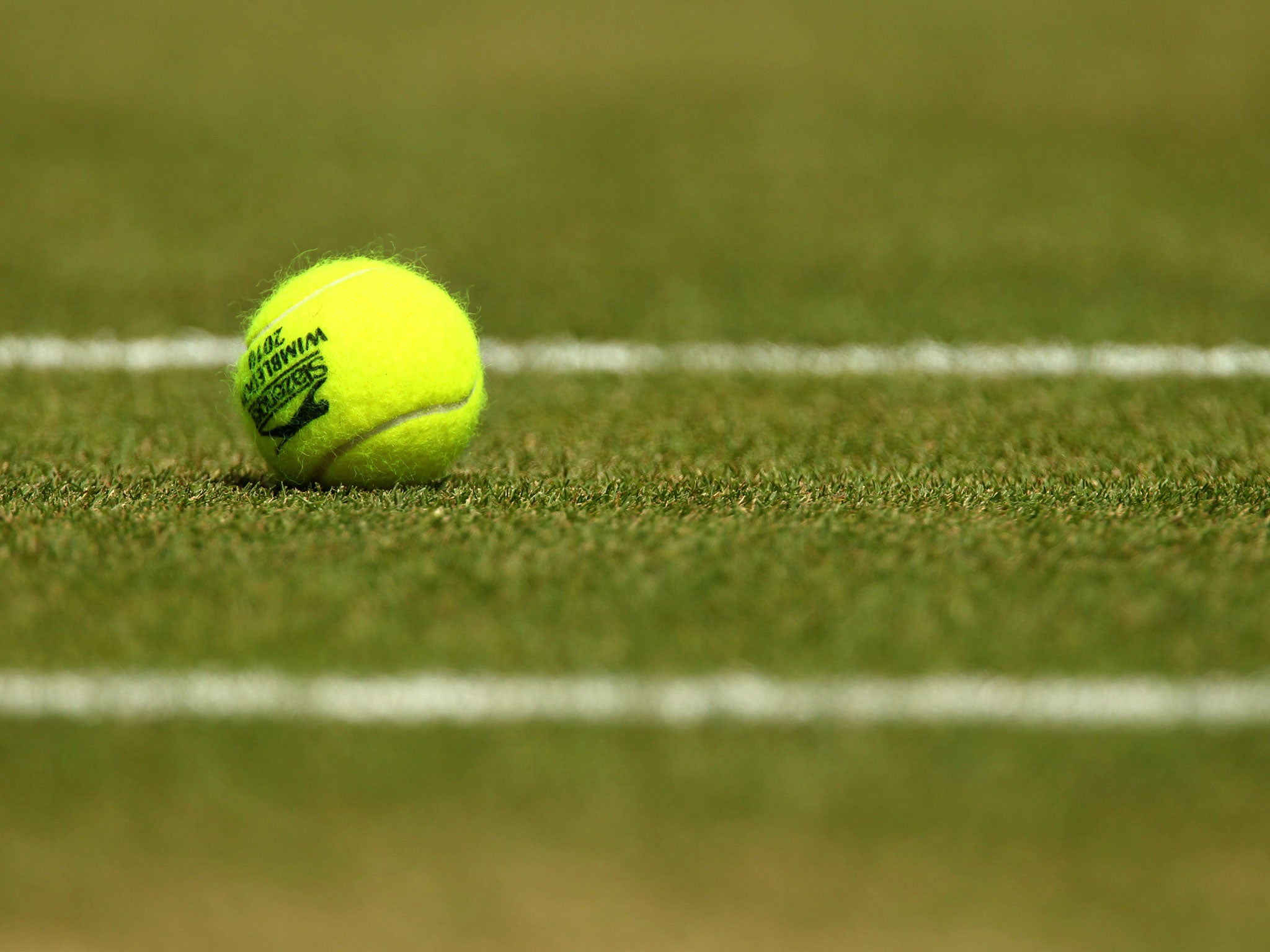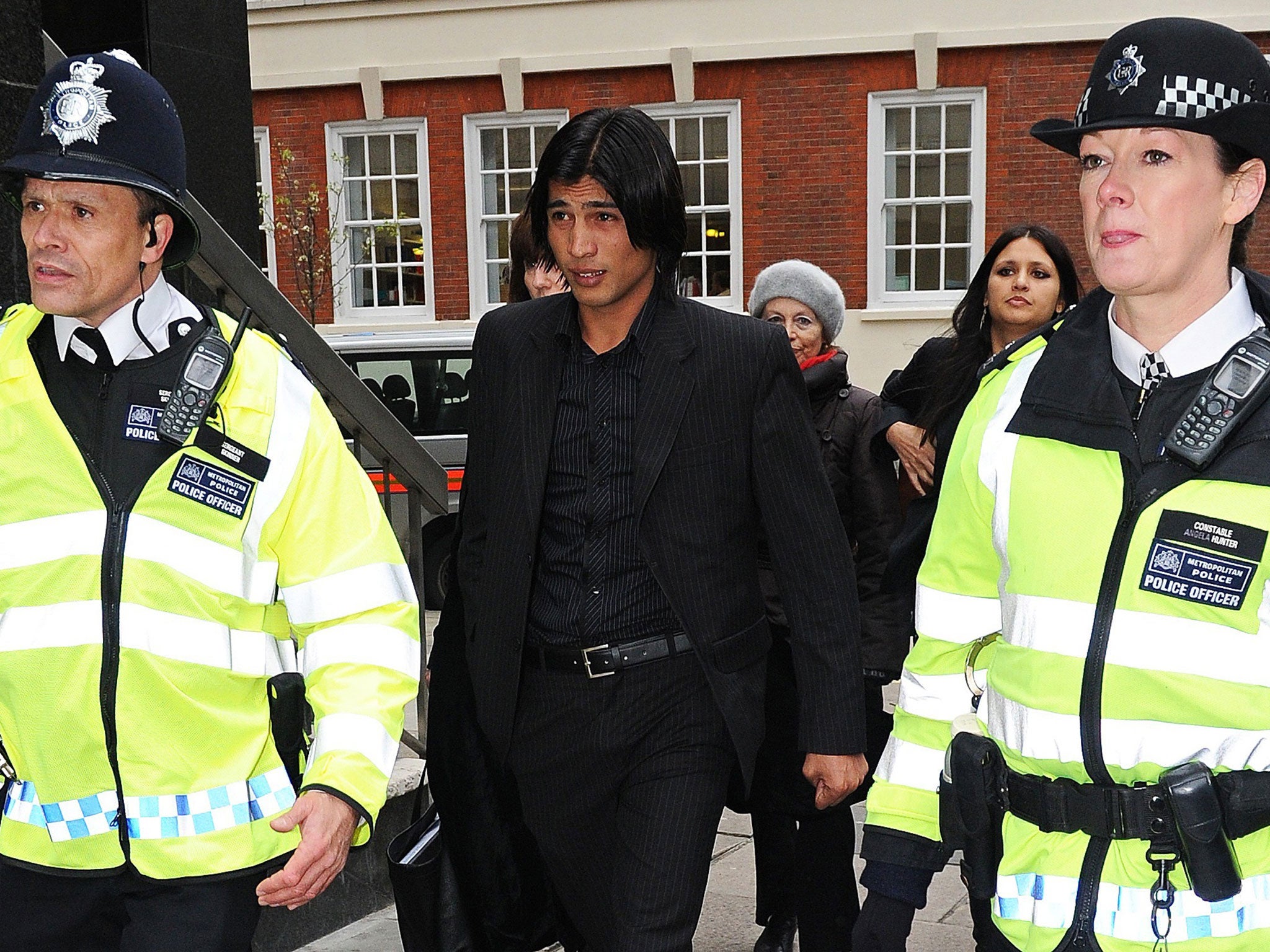Tennis match-fixing: Seven other sports to have suffered embarrassing scandals in recent years
From football to rugb union, here's a list of recents sporting scandals following the news that tennis has been engulfed in allegations of match-fixing

Your support helps us to tell the story
From reproductive rights to climate change to Big Tech, The Independent is on the ground when the story is developing. Whether it's investigating the financials of Elon Musk's pro-Trump PAC or producing our latest documentary, 'The A Word', which shines a light on the American women fighting for reproductive rights, we know how important it is to parse out the facts from the messaging.
At such a critical moment in US history, we need reporters on the ground. Your donation allows us to keep sending journalists to speak to both sides of the story.
The Independent is trusted by Americans across the entire political spectrum. And unlike many other quality news outlets, we choose not to lock Americans out of our reporting and analysis with paywalls. We believe quality journalism should be available to everyone, paid for by those who can afford it.
Your support makes all the difference.Tennis has become the latest sport to be drawn into controversy following an investigation by the BBC and Buzzfeed which claims to expose evidence of widespread suspected match-fixing at top-level events.
Here, we look at some sports which have found themselves making negative headlines in recent times:
Football
The crisis at football's world governing body Fifa reached new levels last year. In May 2015, seven Fifa officials were arrested and later charged along with two others by US authorities over allegations of racketeering, wire fraud and money-laundering conspiracies spanning 24 years. Swiss authorities raided Fifa headquarters for their separate investigation into allegations of criminal mismanagement and money-laundering in connection with the allocation of the 2018 and 2022 World Cups.
Sepp Blatter later announced he was to resign as Fifa president, and in September Swiss prosecutors opened criminal proceedings against him relating to a TV rights deal signed with former Caribbean football chief Jack Warner and a payment made to Uefa president Michel Platini. In December, it was announced Blatter and Platini had been suspended for eight years from all football-related activities following an ethics investigation.
Fifa secretary general Jerome Valcke, meanwhile, had also been provisionally suspended for 90 days, before the ethics committee opened formal proceedings against him after recommendations of a nine-year ban over accusations of corruption involving the sale of World Cup tickets. Valcke was then dismissed with immediate effect on January 14, 2016.
Athletics
Athletics found itself engulfed in crisis after a report by the World Anti-Doping Agency's independent commission published in early January 2016 revealed systematic doping among Russian athletes and its cover-up. The report was scathing of former long-serving IAAF president Lamine Diack, who had since stood aside from his role and been replaced by Lord Coe. The damning verdict read: "The corruption was embedded in the organisation.
It cannot be ignored or dismissed as attributable to the odd renegade acting on his own. The IAAF allowed the conduct to occur and must accept its responsibility." Following publication, Coe, himself a former double Olympic champion, accepted the IAAF was "a failed organisation," but insisted: "My responsibility is to absorb the lessons of the past and to shape the future. The changes I am making will do that. The road back to trust is going to be a long one."
Cycling
March saw the publication of a report by the Cycling Independent Reform Commission (CIRC) - set up by current UCI president Brian Cookson in January 2014 - that accused previous leaders of the sport's world governing body of undermining anti-doping efforts and showing preferential treatment to disgraced former Tour de France winner Lance Armstrong. Cookson called on his predecessor Hein Verbruggen to resign from his position as honorary president of the organisation.
Cricket
The 'spot-fixing' scandal relating to Pakistan's Test against England at Lord's in August 2010 resulted in three of the tourists' players being handed prison sentences in November 2011. Ex-Test captain Salman Butt was jailed for two-and-a-half years for his role as the "orchestrator" of a plot to bowl deliberate no-balls, former world number two Test bowler Mohammad Asif received a 12-month prison term for delivering one of the fraudulent no-balls, and 19-year-old Mohammad Amir, who had been tipped to become one of the all-time great fast bowlers, was detained for six months in a young offenders' institution after he admitted bowling two intentional no-balls.

Snooker
In September 2013, former world number five Stephen Lee was banned for 12 years after being found guilty of seven charges of match-fixing. Backdated to October 2012, the ban means Lee - now 41 - will not be able to able to participate in the sport again until 2024. He was ordered to pay a total of £125,000 in costs in 2014 after failing in his appeal to overturn the punishment.
Rugby union
In August 2009 former Harlequins director of rugby Dean Richards was handed a global three-year ban from coaching after he masterminded the 'Bloodgate' scandal, which saw wing Tom Williams fake a blood injury during the Heineken Cup defeat to Leinster in April that year.

Williams burst a fake blood capsule in his mouth so that substituted drop-goal specialist Nick Evans could re-enter the field of play with Quins trailing 6-5. Richards was found to have orchestrated a cover-up that saw Williams' mouth deliberately cut in the dressing room to hide the offence. It was also found that Richards and then-Quins physiotherapist Steph Brennan had faked blood injuries on four previous occasions. Williams was handed a 12-month ban, reduced to four months after he revealed he was acting under orders from Richards and Brennan.
Horse racing
In April 2013, Godolphin trainer Mahmood Al Zarooni was disqualified for eight years after admitting administering anabolic steroids to horses in his care. The British Horseracing Authority also banned 15 horses trained by Al Zarooni for six months.
PA
Join our commenting forum
Join thought-provoking conversations, follow other Independent readers and see their replies
Comments